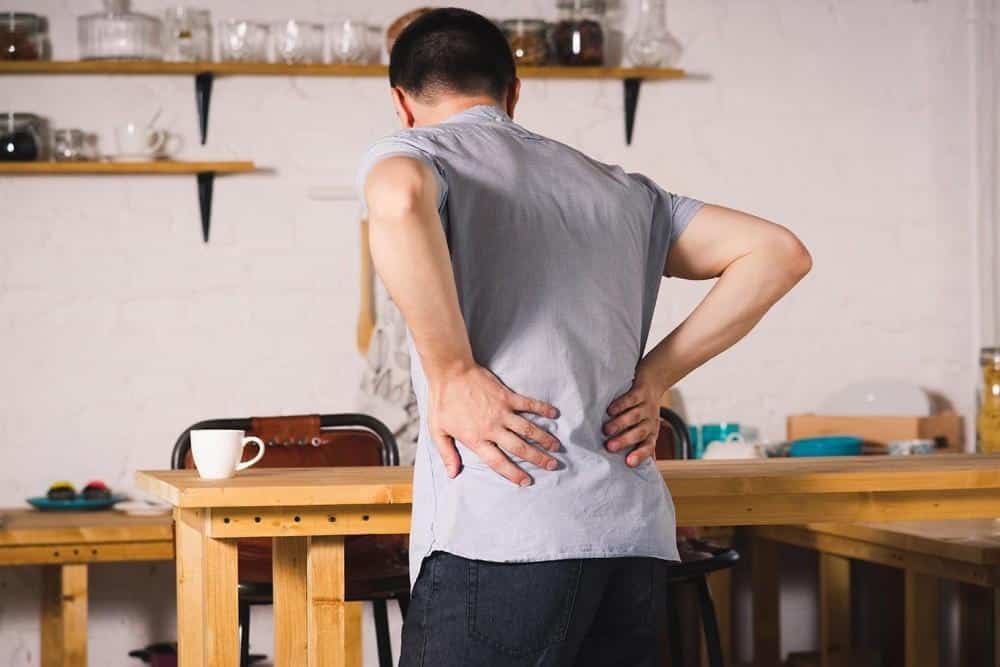Spinal stenosis is a back and neck condition caused by a narrowing of your spinal canal. The narrowing often compresses your nerve roots, leading to various uncomfortable symptoms.
If you have spinal stenosis and need help, Dr. Jordi X. Kellogg and his team provide state-of-the-art treatments for your spine. At Kellogg Brain and Spine, Dr. Kellogg evaluates your condition to determine the best action for your symptoms.
The facts on spinal stenosis
Spinal stenosis is a condition that can affect multiple areas of your spine. When spinal stenosis occurs, the spaces within your spine become narrow, encroaching on your spinal cord and nerves.
Spinal stenosis limits the space for the nerves exiting your spinal cord, causing them to become inflamed or compressed. When spinal stenosis compromises your nerves or spinal cord, you experience various uncomfortable symptoms, including:
- Pain in your low back or neck
- Weakness in the legs and arms
- Sciatica-like symptoms
- Numbness or tingling
- Heaviness in your legs
- Trouble with balance
- Heaviness or clumsiness in your hands
- Loss of bladder and bowel control
Spinal stenosis often affects the nerves in your lower back or your neck. You can have spinal stenosis in your back and neck.
The symptoms of spinal stenosis develop slowly, often progressing over months to years. You may get spinal stenosis if you have bone spurs, a herniated disc, or osteoarthritis in your vertebrae.
Can you cure spinal stenosis?
Unfortunately, spinal stenosis isn’t a condition Dr. Kellogg can cure or reverse. Once you have spinal stenosis, you’re stuck with it to a certain extent.
Though there’s no way to reverse the damage, you can manage your symptoms effectively with specific treatments. For example, you can manage mild-to-moderate spinal stenosis with medications like anti-inflammatories.
Dr. Kellogg may also recommend antidepressants or antiseizure medications to manage chronic pain and nerve symptoms related to spinal stenosis.
If medications alone don’t eliminate your symptoms, Dr. Kellogg also offers physical therapy. Physical therapy helps you overcome pain and disability by providing stretches and exercises to strengthen your back and core.
Steroid injections are another great option Dr. Kellogg provides to manage spinal stenosis pain. These injections contain powerful steroids and anesthetic medications to ease inflammation and pain around the nerves in your spine.
Dr. Kellogg may recommend surgery in severe cases where other conservative measures haven’t helped. However, surgery is invasive, so he thoroughly evaluates your spine, health, and imaging studies to determine if this is the proper treatment.
Tips to prevent spinal stenosis from getting worse
Even though you cannot get rid of spinal stenosis, there are some tips you can use to prevent the condition from worsening. A few of the lifestyle tips Dr. Kellogg recommends when you have spinal stenosis include:
Watch your weight
Your weight has a significant impact on your spine health. If you’re overweight, losing even a few pounds reduces the strain on your spine and nerves. The more in shape you are, the better off your spine is in the long run.
Eat healthily
A healthy diet is vital to many aspects of your health, including your spine. If you have spinal stenosis, choose whole foods, fruits, vegetables, and lean proteins. These foods nourish your body and provide vitamins and nutrients essential to your health.
Get some exercise
Exercise is a great way to manage weight and keep your spine healthy. If you have spinal stenosis, choose low-impact exercises like walking, bike riding, or swimming to keep excess stress off your spine.
Practice good posture
Good posture is essential in keeping spinal stenosis symptoms at bay. Keep from hunching over or slouching when standing or sitting, as this exacerbates your symptoms. Practicing good posture when lying in bed is also a good idea to prevent waking up in pain.
If you smoke, quitting is vital to keeping spinal stenosis from getting worse. Smoking harms many aspects of your body and can make your symptoms worse.
To find out your treatment options for spinal stenosis, don’t hesitate to call one of our offices in Oregon today or request an appointment with Dr. Kellogg on our website.


